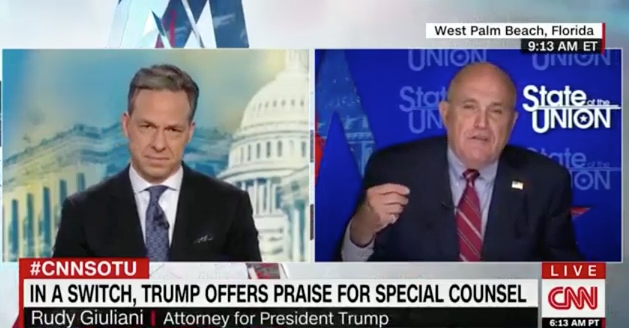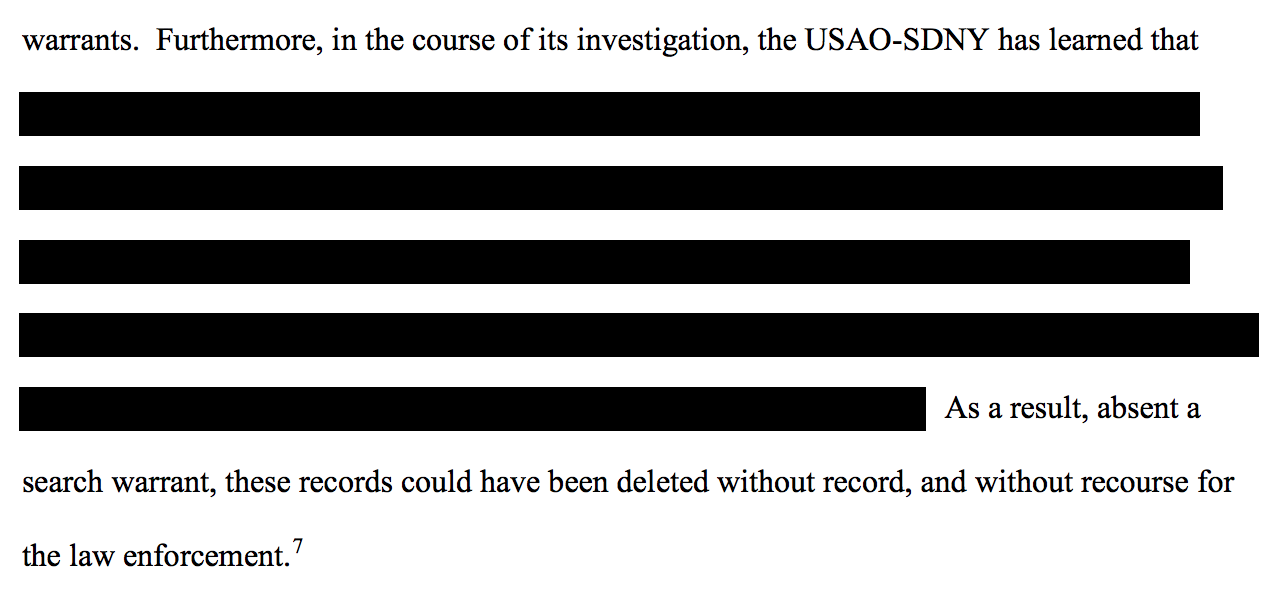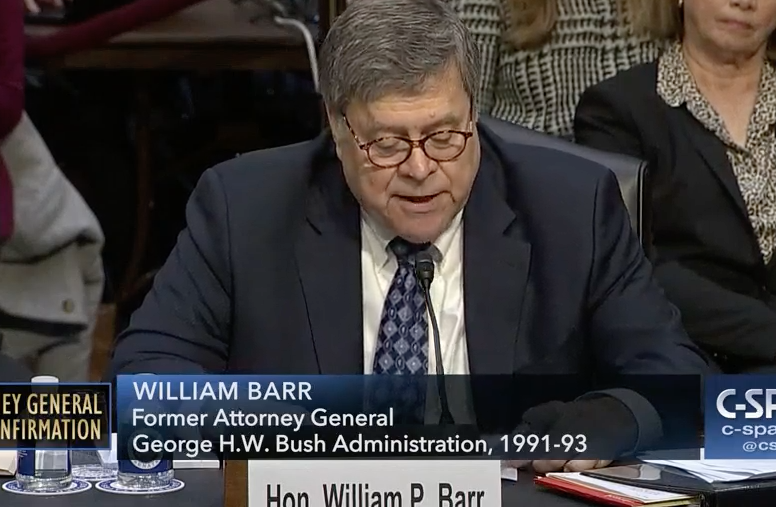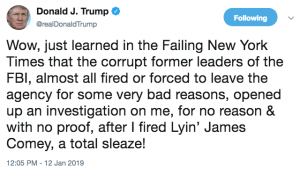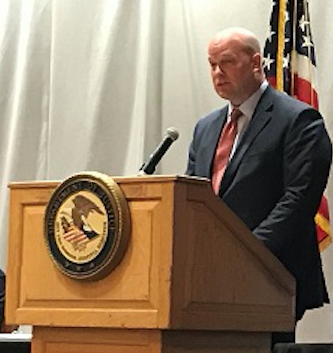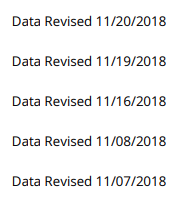Rudy Is Relying on Tapes to Claim Buzzfeed Is Phony: But There Aren’t Tapes of Everything
Yesterday, I noted that Rudy could not be sure the Buzzfeed story was phony when Trump’s lawyers called Mueller’s office Friday, because the White House should have no knowledge of what Michael Cohen said in his interviews with law enforcement.
Today, the New Yorker provided Rudy’s latest splutter explaining why he believed he could be sure the story was phony.
Where are we now with Trump and Cohen and the BuzzFeed story, and your response to it?
I guess the BuzzFeed story—I don’t remember what it said about Cohen—but it said there was corroboration that the President talked to Cohen and told him to lie about, I guess it was, the Moscow proposal. There are no tapes, there are no texts, there is no corroboration that the President told him to lie. That’s why the special counsel said that the story was inaccurate. First time the special counsel has ever done that. As a prosecutor, having done that for fifteen years, that is quite a heavy rebuke of BuzzFeed. And the reality is that the President never talked to him and told him to lie. And I don’t know what Cohen is saying, but certainly the idea that two federal agents said that there was corroboration is totally untrue.
Did President Trump’s lawyers or you yourself reach out to the special counsel’s office after the story, as has just been reported?
I can’t discuss that. President Trump would not have done that. If anybody would have done it, obviously it would have been his lawyers, and I really can’t discuss that. That would be confidential.
Do you—
But I can tell you, from the moment I read the story, I knew the story was false.
Because?
Because I have been through all the tapes, I have been through all the texts, I have been through all the e-mails, and I knew none existed. And then, basically, when the special counsel said that, just in case there are any others I might not know about, they probably went through others and found the same thing.
Wait, what tapes have you gone through?
I shouldn’t have said tapes. They alleged there were texts and e-mails that corroborated that Cohen was saying the President told him to lie. There were no texts, there were no e-mails, and the President never told him to lie.
So, there were no tapes you listened to, though?
No tapes. Well, I have listened to tapes, but none of them concern this.
This passage explains everything we need to know both about why Mueller’s office set the bar on Cohen’s testimony where they did, and why the White House responded the way it did.
But it doesn’t mean Rudy can be certain that Cohen didn’t tell authorities that Trump ordered him to lie.
Remember that when Cohen was raided, Trump squealed like having his fixer raided was the biggest constitutional crime of the century. Both Trump Org and Trump himself insisted on paying $1 million to get a special master appointed to conduct the privilege review.
The results were expansive and seemingly an expensive dud for Trump. Special Master Barbara Jones ended up finding just 7,434 items out of boxes and boxes of evidence to be privileged. There were 57 other items Trump and friends wanted to claim were privileged, but not enough to argue why they were publicly.
In her summary, Jones described that altogether 7,434 items had been deemed privileged. Trump and or Cohen had objected to Jones’ designations with regards to 57 items, but were unwilling to fight to have Wood overrule Jones’ designation if their arguments would be public.
It was part way through the Special Master process when Cohen started talking about being abandoned by Trump and warming up to flipping on the guy he had been loyal to for so long.
On July 2 and July 13, Jones started releasing big chunks of non-privileged items. Almost 2.2 million items were turned over. On July 10, Cohen moved to share all these materials with Guy Petrillo. By this point, Cohen felt he had been abandoned by Trump and was preparing to flip against his client. July 23 is when Jones reported that Cohen and Trump had withdrawn designations of privilege with respect to 12 audio files, which were then released to the government (and began to be leaked on cable shows).
I guess I was wrong when I said this process was an expensive dud. Trump’s lawyers weren’t using it to assert privilege over stuff they knew was mostly not.
They were using it to assess how much damage Cohen could do to the President. Once they reviewed that discovery, they recognized they didn’t have to continue to dangle a pardon for Cohen, because there wasn’t documentary or recorded evidence to back up the most damning allegations he might make against the President. It’d just be Cohen’s word against Trump’s.
And that’s the basis on which the White House contacted Mueller’s office Friday: Having reviewed everything seized from Cohen’s raid, including any tapes Cohen made of conversations with Trump, they believed they could assert to Mueller’s office that the Buzzfeed story was not true.
This also explains why Mueller set the bar on Cohen’s allocution where he did. Cohen may well have told Mueller that he believed Trump ordered him to lie. Trump likely did! Certainly, Rudy is not denying that happened. But unless Cohen recorded that conversation — as he did for the hush payments — then Mueller is not going to set himself up to have to prove that. That necessarily partly explains (in addition to the issues I raised here) the difference in how SDNY allocuted Cohen and how Mueller did. SDNY has tapes, courtesy of Cohen, of Trump ordering him to pay off his sex partners; Mueller does not have tapes, courtesy of Cohen, of Trump ordering Cohen to lie to Congress.
That said, Rudy still should have no basis for asserting what Cohen has said to one or another law enforcement agent. While it’s not clear what Cohen’s status was at various times of this process, he would only have been recorded by the FBI if he was in custody. And the White House should not have his 302s (nor might they have all the other materials from others who have been interviewed, though admittedly would have lot from having done Trump Organization’s document production and being in a joint defense agreement with most of the relevant people).
One more thing: The degree to which Rudy emphasizes that Trump would not have reached out to Mueller’s office makes me believe we’re shortly going to learn he did reach out to Big Dick Toilet Salesman Matt Whitaker.
President Trump would not have done that.
That’s one of the most logical explanations for the currently contradictory messages coming from seemingly official DOJ sources about what Rod Rosenstein’s office did.
Epic cheap-ass Donald Trump paid $500,000 to figure out whether Michael Cohen had recorded the most damning conversations between them. But it was worth it! He paid it to be able to do what he did Friday, demand a statement disclaiming what is obviously true: that has Trump repeatedly suborned perjury from his advisors to hide what he did with Russia.
As I disclosed last July, I provided information to the FBI on issues related to the Mueller investigation, so I’m going to include disclosure statements on Mueller investigation posts from here on out. I will include the disclosure whether or not the stuff I shared with the FBI pertains to the subject of the post.

